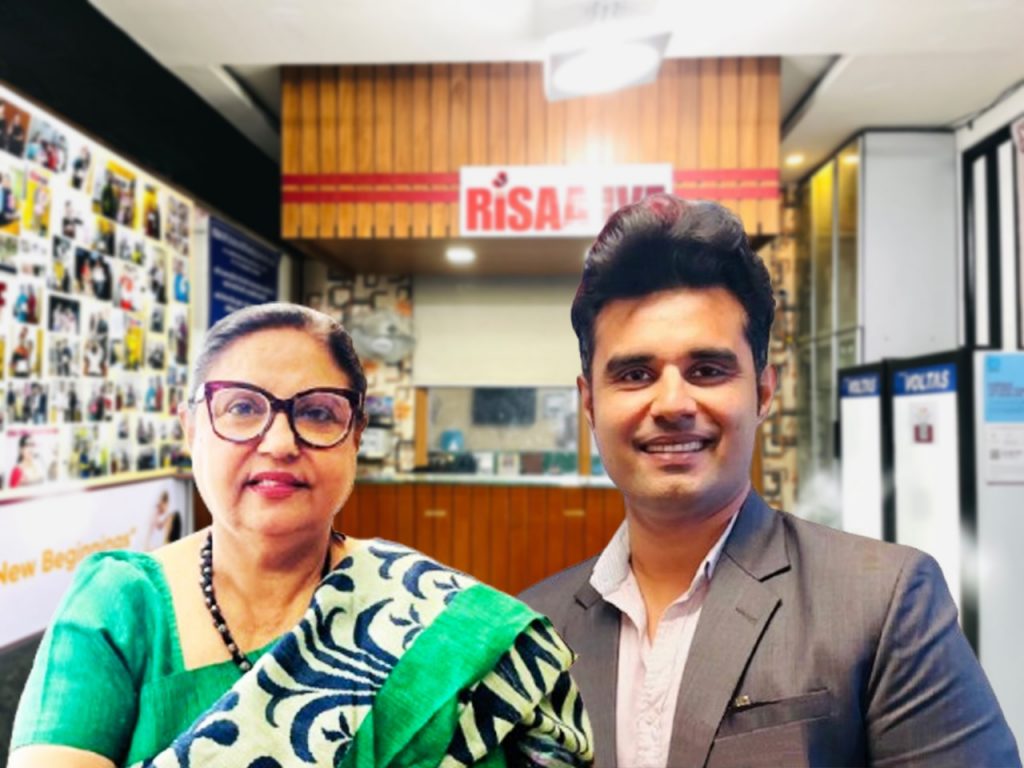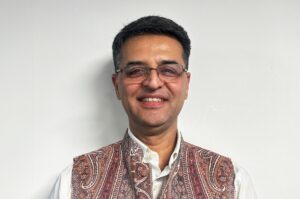
A recent article published by The Times of India on January 30, 2025, highlighted a groundbreaking development in reproductive science—lab-grown eggs and sperm, known as in-vitro gametogenesis (IVG). According to the report, scientists are making significant strides in creating gametes from stem cells, a technology that could revolutionize fertility treatments. While this advancement has been successfully tested in mice, its application in human reproduction is still under extensive research. Experts predict that IVG could become a reality within the next decade, potentially changing the landscape of assisted reproduction.
Dr. Rita Bakshi and Dr. Saarthak Bakshi of RISAA IVF, a leading fertility center, have shared their perspectives on this emerging technology, considering its potential impact on infertility treatments and the ethical, medical, and regulatory challenges it presents.
Dr. Rita Bakshi’s Perspective: A Hopeful but Cautious Approach
Dr. Rita Bakshi, Chairperson of RISAA IVF, with over three decades of experience in gynecology and fertility treatments, recognizes the immense potential of IVG as highlighted in “The Times of India” report. She believes that if successful, this technology could be a game-changer for individuals who cannot produce viable eggs or sperm, such as cancer survivors, older individuals, and those with severe infertility conditions.
However, she urges caution, emphasizing that while the concept of lab-grown gametes is promising, there are significant safety concerns. “The success seen in animal models is encouraging, but human biology is far more complex. Until we have extensive clinical trials and regulatory approval, IVG should remain in the experimental phase,” she states. Dr. Bakshi highlights that before integrating such technology into mainstream fertility treatments, rigorous testing must be conducted to ensure that lab-grown gametes function like natural ones and do not carry genetic abnormalities.
Dr. Saarthak Bakshi’s Perspective: A New Era in Fertility Science
Dr. Saarthak Bakshi, CEO of RISAA IVF, sees IVG as a potential revolution in reproductive medicine, aligning with The Times of India’s report on its future prospects. He believes that if proven safe and effective, IVG could eliminate many of the barriers couples face in their journey to parenthood.
“We are witnessing the future of fertility science unfold before our eyes. If this technology matures, it could open doors for same-sex couples to have genetically related children, provide solutions for premature ovarian failure, and even reduce dependence on egg and sperm donors,” he explains.
However, he also highlights the need for strict ethical and legal guidelines to govern this new technology. “While scientific innovation is exciting, we must also ask difficult questions: Who will have access to IVG? How will we regulate its use? And what are the long-term genetic implications?” Dr. Bakshi believes that policymakers, medical professionals, and bioethicists must work together to create a clear framework before IVG becomes a reality in clinical settings.
Ethical and Regulatory Concerns
Both Dr. Rita Bakshi and Dr. Saarthak Bakshi stresses that while IVG offers hope, it also raises ethical dilemmas. The Times of India article points out that creating gametes in a lab could lead to concerns about genetic modification, designer babies, and potential misuse of the technology. The experts at RISAA IVF agree, stating that any clinical implementation of IVG must be regulated with strict oversight to prevent ethical violations.
Dr. Rita Bakshi also mentions the psychological implications for future generations. “Will children born from lab-grown gametes face unknown health risks? How will they perceive their identity? These are questions we must address before moving forward,” she says.
Future of IVG at RISAA IVF
While RISAA IVF remains committed to adopting cutting-edge technology in fertility treatments, Dr. Saarthak Bakshi reiterates that patient safety is the top priority. “We are closely monitoring global research on IVG and are eager to explore its potential, but only when it meets the highest medical and ethical standards,” he states.
The experts at RISAA IVF believe that while The Times of India’s report on IVG highlights an exciting future, the journey from research to real-world application is long. Until then, traditional assisted reproductive technologies like IVF, ICSI, and egg freezing remain the most reliable options for couples struggling with infertility.
Conclusion
Lab-grown gametes could redefine fertility treatments, as highlighted by media, and experts at RISAA IVF acknowledge its potential to transform lives. However, they emphasize that science must progress responsibly, ensuring safety, ethical integrity, and accessibility. As research continues, the fertility community, including pioneers like Dr. Rita Bakshi and Dr. Saarthak Bakshi—will play a crucial role in shaping how this technology is integrated into reproductive healthcare in the years to come.



